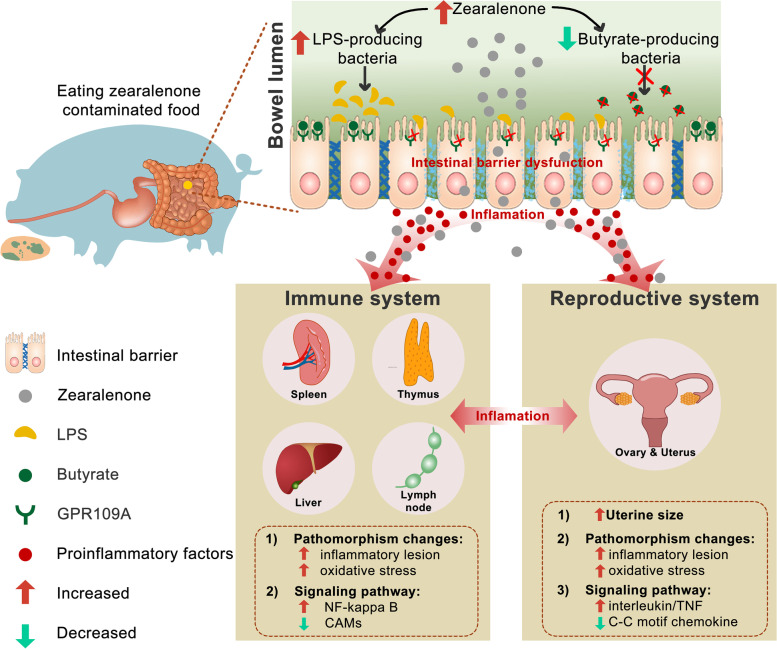Fig. 8.
Schematic representation of ZEN disturbs the reproductive-immune axis accompanied by altered gut microbial metabolites. (1) Excessive mycotoxin (e.g., ZEN)-induced toxicity firstly shifted gut bacterial community profiles, and then elevated microbial-derived LPS but lowered microbial-derived butyrate. (2) Reduction of butyrate production resulted in intestinal barrier dysfunction via a GPR109A-dependent manner, and together with increased LPS in plasma aggravated the systemic inflammation. (3) Subsequently, ZEN-induced systemic inflammation impaired immune-related pathways in immune systems, and these changes were also accompanied by pathomorphism and mitochondrial oxidative stress. (4) Meanwhile, ZEN-induced toxicity disturbed the reproductive system through an over-triggered systemic inflammatory response, which was closely related to alterations in specific immune-related genes

